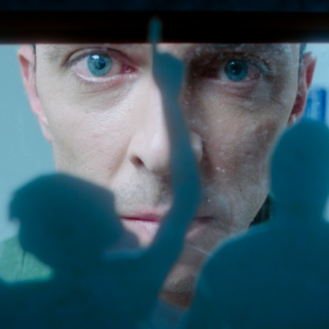The growing tension in Blue Jean is unmatched; clouding the titular character’s life until they feel they have no choice but to act rashly to protect themselves, and underestimating the fallout.
As a closeted educator in the 80s, holding on tight to her sense of social “normalcy”, Jean (Rosy McEwen) is discouraged when a new student, Lois (Lucy Halliday), discovers Jean’s personal life outside of school. Jean, already stressed, is having a hard enough time convincing her girlfriend Viv (Kerrie Hayes) that she shouldn’t be dismayed by their lack of commitment. As the conservative government cracks down on LGBTQ communities, Lois’ knowledge makes Jean even more nervous, but the teacher still wants to keep her integrity as a support system to her students; especially when Lois is constantly getting picked on by intimidating and homophobic peers.
Blue Jean is an exceptional feature filmmaking debut for writer/director Georgia Oakley, as well as a strong showcase for the cast. Jean’s personal worries, which is supposed to represent the anxieties and pressures felt by closeted homosexuals, is brilliantly communicated to audiences. The emotion isn’t undercut to play up surface-level thrills, but Oakley also understands how to use these tonal qualities to drive the story forward. When a pivotal shift in trust happens between Jean and Lois that puts the latter in danger, our heart sinks for both characters. Other stylistic choices, including confined shot compositions and music choices that take full advantage of the time period, also serve the film well.
The year has offered movie goers great additions to the queer canon (Erin’s Guide to Kissing Girls, Summoning Sylvia, You Can Live Forever), and Blue Jean is another standout inductee.
*********
Do You Tweet? Follow These Tweeple:
Addison Wylie: @AddisonWylie





Be the first to comment